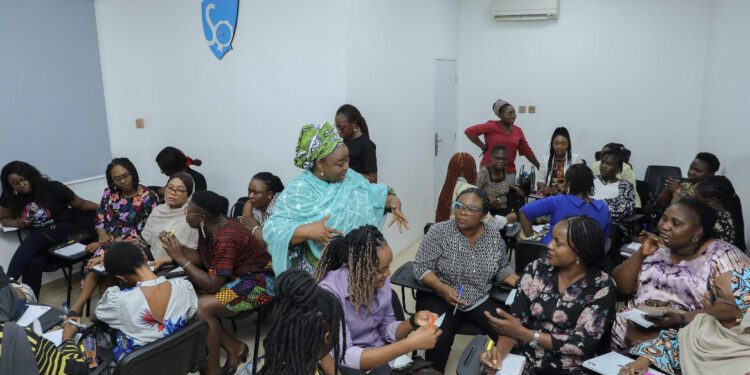By Ebi Kesiena
The push for greater female representation in Nigeria’s political landscape gained renewed momentum as the Nigeria Association of Women Journalists, NAWOJ, intensified its call for the passage of the Special Seat Bill.
The proposed legislation, currently before the National Assembly, seeks to reserve specific seats for women in both the National and State Houses of Assembly, aiming to correct decades of gender imbalance in Nigeria’s politics.
The advocacy took centre stage at the Fit for Inclusion programme held in Abuja, a dynamic gathering that blended wellness and activism.
The event was a collaborative initiative by the Women in Media Development Initiative, WIMDI, NAWOJ FCT Chapter, and Gender Strategy Advancement International, GSAI, and was designed to empower women journalists to become stronger advocates for gender-sensitive reforms.
Participants at the event described the Special Seat Bill, co-sponsored by Deputy Speaker Benjamin Kalu and 12 other lawmakers, not merely as a political proposal but as a historic remedy to long-standing structural exclusion of women in decision-making.
“Women understand the challenges other women face,” one speaker remarked passionately. “This Bill isn’t about handouts; it’s about creating a fairer, more representative system. It’s a corrective mechanism for a system that has failed women for far too long.”
Nigeria currently ranks among the lowest globally in terms of female political representation. Only three of the 109 seats in the Senate are held by women. In the House of Representatives, just 15 out of 360 members are female. These stark numbers served as a sobering backdrop for discussions and calls to action at the event.
Chairperson of NAWOJ FCT, Comrade Bassey Ita Ikpang, challenged fellow journalists to leverage their platforms and shift public narratives.
“We must use issue-based journalism to transform public opinion. It’s time to stop framing women leaders solely by their gender and start focusing on their competence and impact. Journalists, especially women, must educate voters at the grassroots level on the significance of this Bill,” she said.
Also, Adaora Sydney Jack, Executive Director of GSAI and a former political aspirant, recounted the formidable barriers she encountered when she ran for public office, from financial constraints to systemic exclusion.
“Until I contested, I didn’t fully grasp how structurally impossible the political space is for women,” she said. “Numbers matter. Without a critical mass, women have no bargaining power. This Bill is vital, not just for elite women, but for those in rural communities, the youth, and women living with disabilities.”
Meanwhile, veteran journalist Lara Owoeye-Wise called for a united digital media campaign. She urged all NAWOJ members and supporters to harness their influence across traditional and social platforms to galvanise national support.
“Without women, democracy is incomplete. This Bill offers a chance to build a more inclusive, responsive, and just Nigeria. The time to act is now.”




































